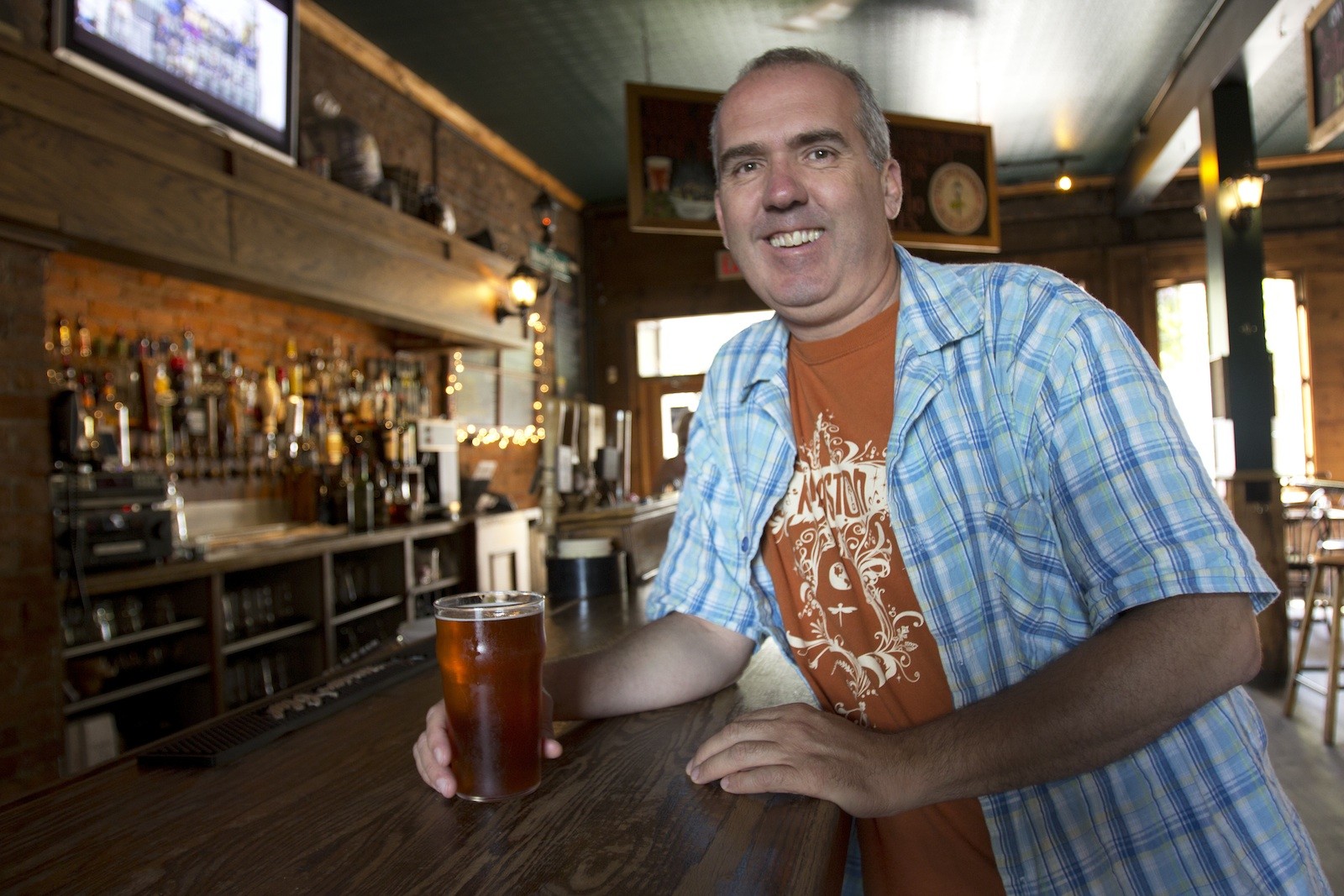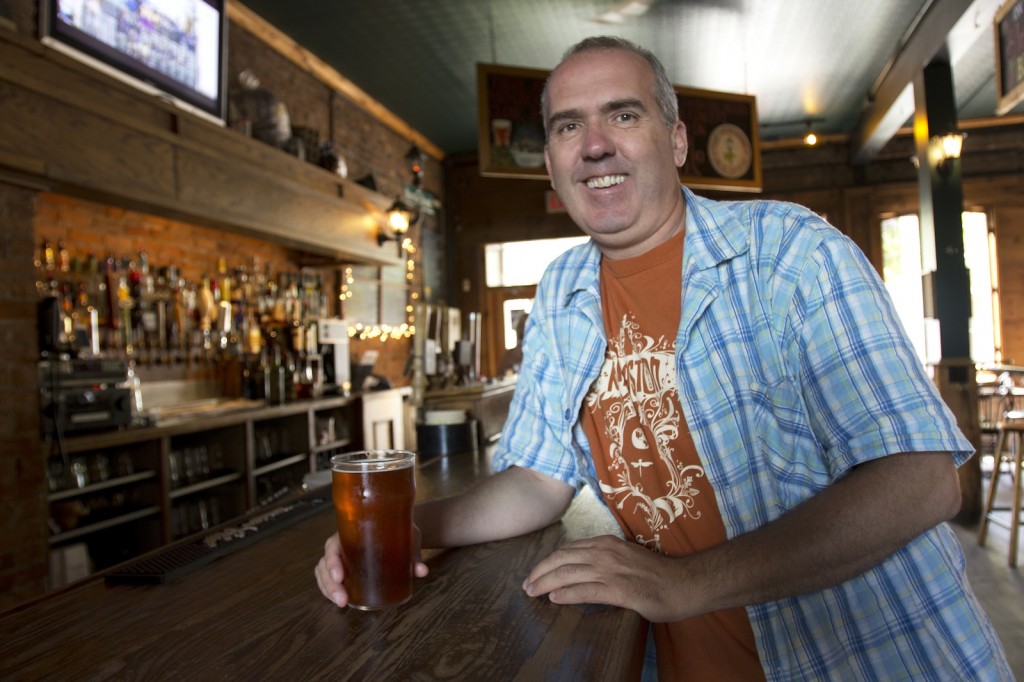 Dan Malleck, Professor with Brock's Department of Health Sciences and Director of the Centre for Canadian Studies.
Dan Malleck, Professor with Brock's Department of Health Sciences and Director of the Centre for Canadian Studies.
Prof. Dan Malleck has won the Canadian Historical Association's Clio Award for the best book of Ontario history for 2012.
A Brock prof’s book examining how the Ontario government dealt with the regulation of alcohol and public drinking in the province in the post-prohibition ‘20s and ‘30s has received national accolades from the Canadian Historical Association (CHA).
Dan Malleck’s Try to Control Yourself: The Regulation of Public Drinking in Post-Prohibition Ontario, 1927-44 (UBC Press) was recognized this past June with a CHA Clio Award for the best book of Ontario history for 2012.
The Clio awards are presented to historians for commendable publications or exceptional contributions to regional history in six areas: Atlantic, Quebec, Ontario, The Prairies, British Columbia, and The North.
Malleck’s book, which looks at how the Liquor Control Board of Ontario (LCBO) implemented a new set of behavioural norms for public drinking in post-prohibition Ontario, was recognized for its in-depth social history of alcohol as well as its attention to the history of state formation. The work navigates a demanding research topic by tracing its relations to overarching social themes, such as political patronage, race, ethnicity, family, security, and the Second World War.
“I tried to address what I saw as bigger questions around that time period,” says Malleck, associate professor, Community Health Sciences. “Liquor regulation touched everyone, so it reached into these different fields.”
The CHA citation for Try to Control Yourself notes: “The book demonstrates a sound command of the historical literature on drink and temperance in Canada, but leads the reader through his argument with agility and engaging, compelling writing. The best compliment that can be paid to any scholarly history is true of this one: it is convincing.”
“With this book I tried to look at the complexity of policy and regulation formation while addressing some of the myths around drinking and drinking regulations in Ontario,” Malleck says.
Some of the myths Malleck addresses are the beliefs that political patronage is always a bad thing and that liquor regulation was simply the government imposing temperance values on drinkers. Another common assumption is that ethnic drinkers were generally oppressed and dismissed as outsiders by the LCBO, and expected to act like white Anglo-Canadians when they drank.
“In fact, what I found is that the LCBO was conscious of the cultural differences of drinking patterns,” Malleck says. “For example, Germans in Waterloo County seemed to want to drink more beer than other Ontarians and they saw the drinking space as a family space. So the LCBO had to negotiate that more than just saying ‘sorry you can’t do that that way.'”
When asked why the history of Canadian alcohol policy is relevant to society today, Malleck notes that “understanding how the state control of a problematic behavior develops is useful.”
“This kind of history informs our perceptions of why a particular system exists and the process around creating that system. It goes against the idea that it’s just a bunch of people saying ‘oh let’s just do it this way,'” he says.
“We see a gradual acceptance of the government influencing our lives in this way. That’s why I called the book Try to Control Yourself because it’s about constructing a system that encourages people to manage themselves and internalize these sorts of controls. That internalization is necessary for the system to work.”
Between researching and writing, Malleck’s award-winning book took more than eight years to complete. Most of that was spent sitting in the Ontario provincial archives going through hundreds of old records from the LCBO, including inspection reports for licensed beverage rooms, most of which were located in hotels.
“I looked at everything for the six regions in the book,which includes Toronto, Ottawa, Niagara, Essex County, Waterloo County and the Thunder Bay district.
“My next work will not take so long,” he adds wryly.
The recognition by the CHA is a big deal, Malleck says, because its from his peers.
“People I don’t know and perhaps will never meet think this was a good book, so that’s wonderful,” he says. “It’s also nice because I’m a historian but not located in a history department, so to have the Canadian Historical Association judge my work as a valuable work of history means a lot to me.”
Malleck’s current research looks at the development of Canada’s drug laws from the nineteenth century to 1911.









